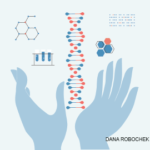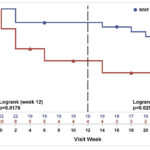A large, international team of rheumatologists, geneticists, hematologists and other researchers has discovered a severe inflammatory syndrome linked to an acquired genetic mutation in the bone marrow of older men. The X-linked syndrome, they found, is caused by a somatic mutation in myeloid stem cells that hobbles the master regulator of a pathway tasked with…







